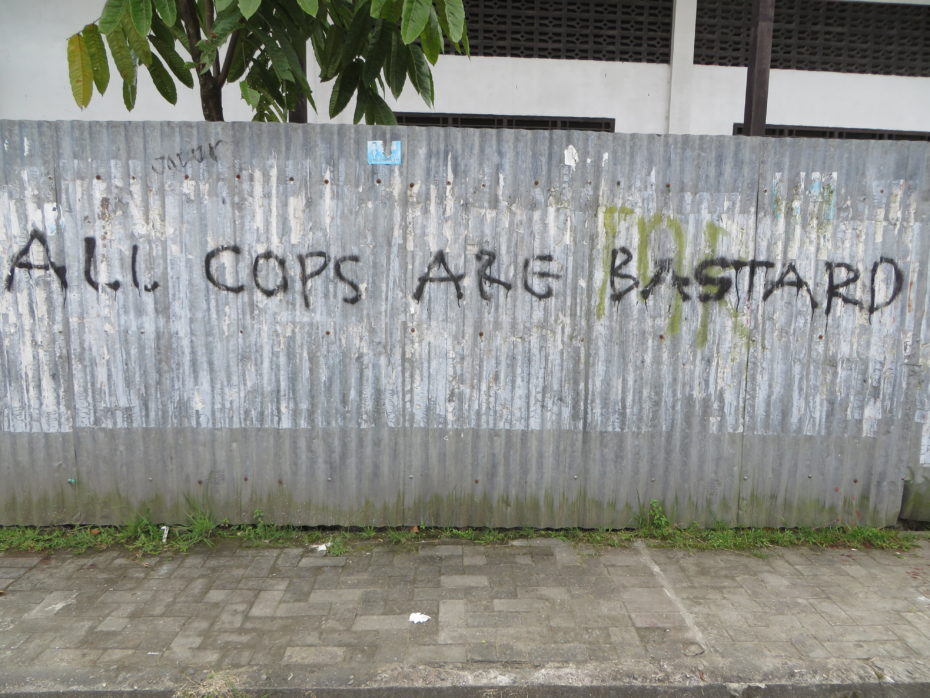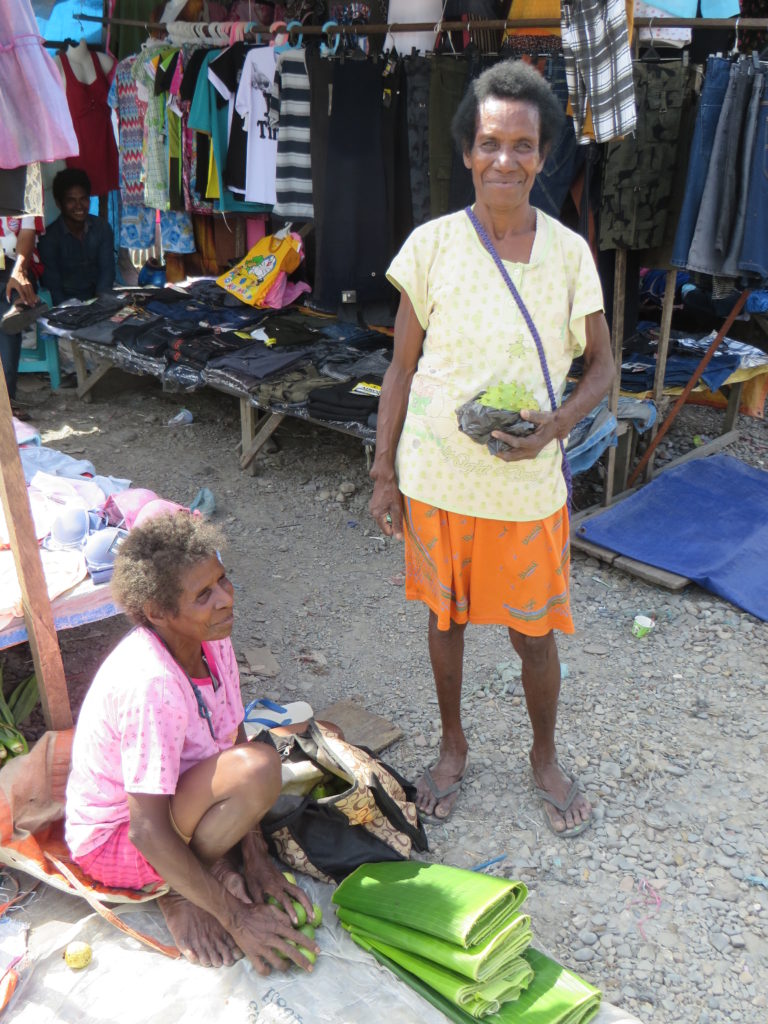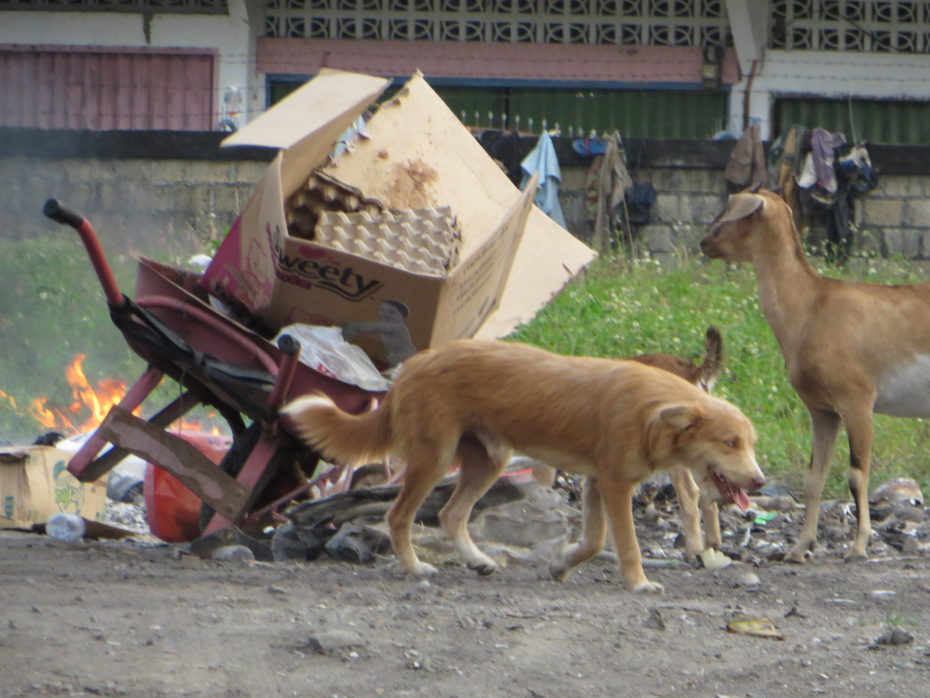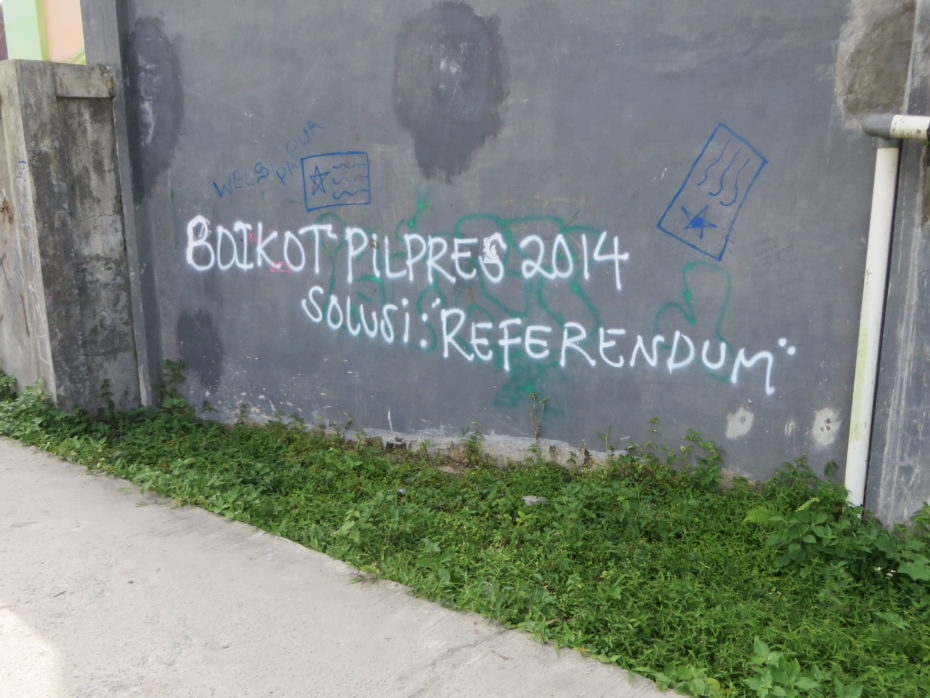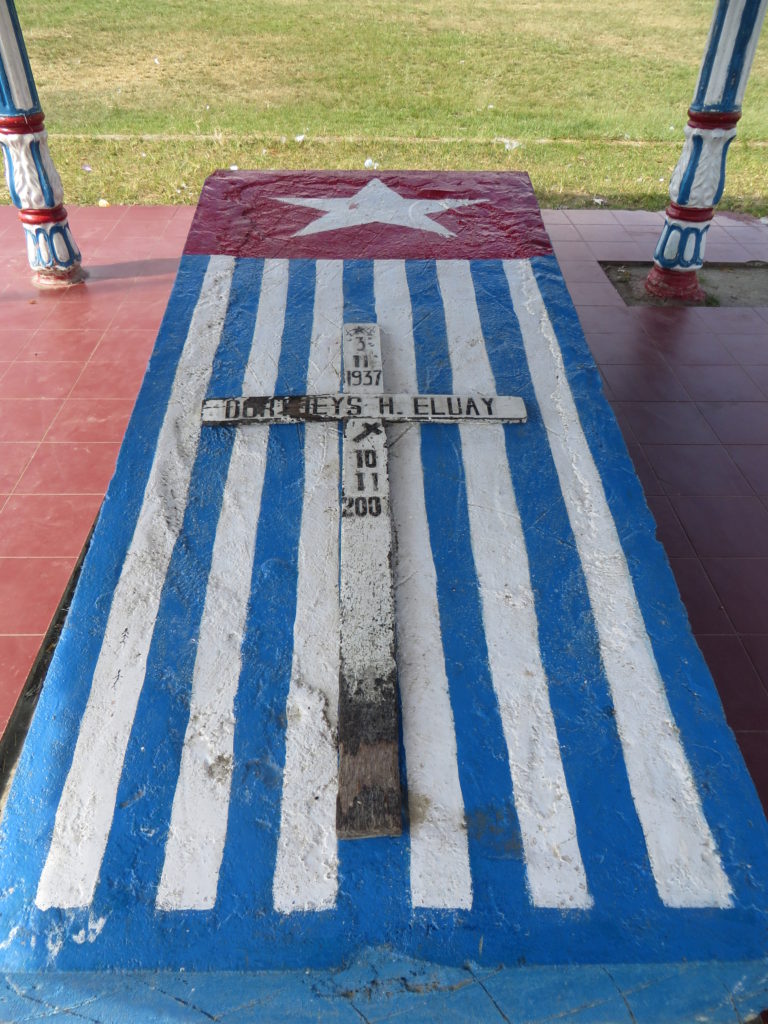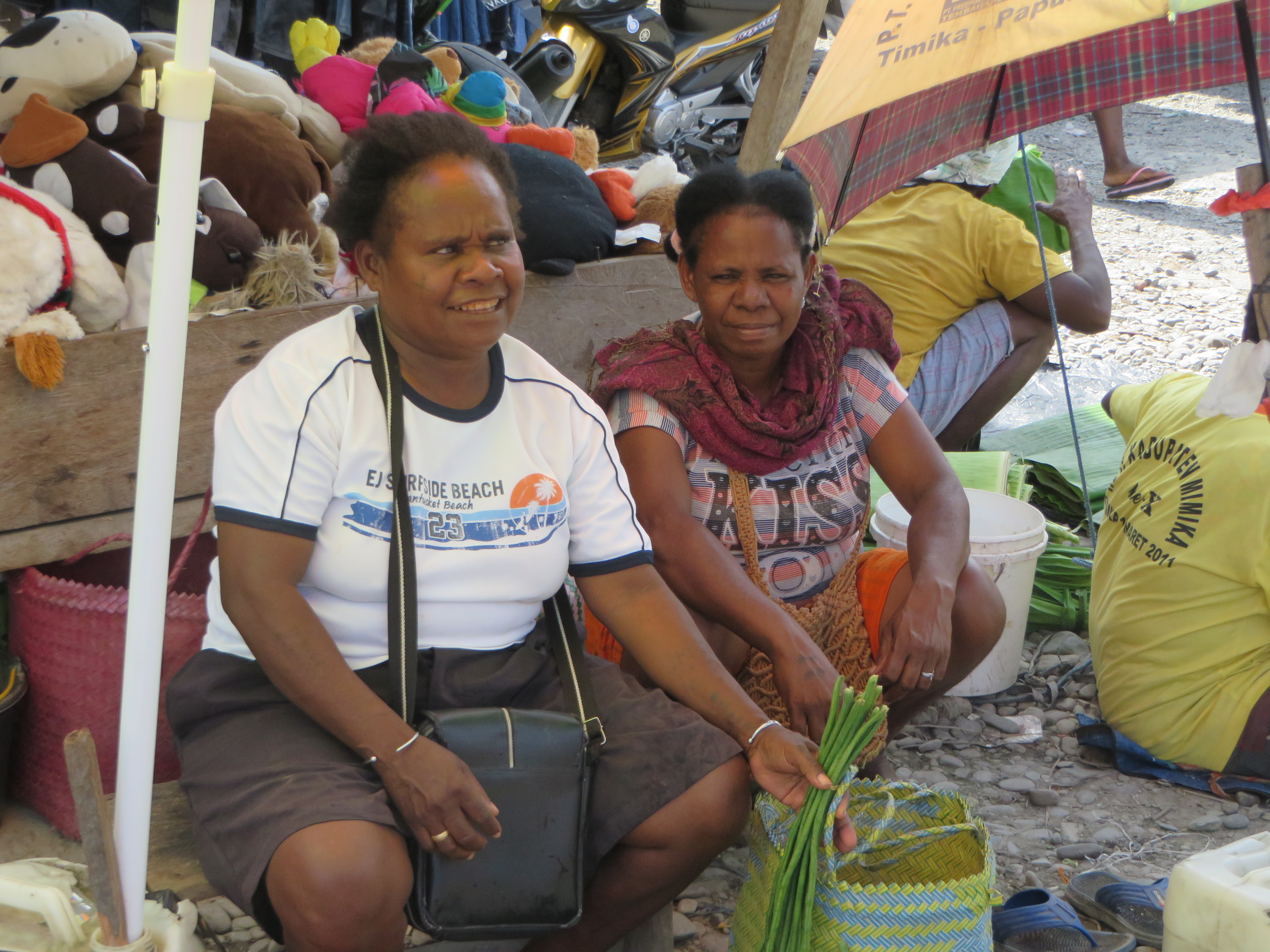You may have thought that colonialism had been consigned to the dusty, historical cupboards of European guilt but in one corner of Indonesia it is alive and well. In a slight twist on the old school model, many West Papuans (who are dark-skinned Melanesians) converted to Christianity under the influence of Dutch colonial rule but are now under the yoke of the largely Muslim Indonesians. The central pillar of the injustice is the 1969 Act of Free Choice initiated by the dictator Suharto and supposedly overseen by the UN to determine whether or not the Papuans wished to be part of Indonesia. Instead of burdening the state with anything cumbersome like actually getting people to vote, he picked a thousand people to act as representatives and held guns to their heads to make sure they voted the right way. With Suharto’s powerful allies, the three great monkeys of the US, Australia and the UK, committed to hear, see and say nothing, any hope that the international community might recognise the wrong doing soon wafted away on the hot air of our politician’s breaths. All these years later and the world has remained resolutely unconcerned by events, while millions of subsidised Indonesians have been shipped in, now outnumbering Papuans and creating a big obstacle to any future referendum.
Like all colonial empires before it, any expression of independence is brutally suppressed, even the raising of the Independent Papua Morning Star flag will merit you a long prison sentence, should you be lucky enough to survive the arrest procedure. Many Papuans peacefully protesting for the right of independence, or anything else for that matter are denied any judicial process and simply shot. The years of struggle have left an estimated 100,000 dead and little outside recognition to show for it. The dead bodies of Papuan activists are photographed as trophies by grinning Indonesian military and torture remains the interview technique of choice.
Again, like all colonial powers the occupation was entirely driven by greed, to tap the untold riches of the land: its ore, gold and timber. Back in the days of the Cold War, the US had cannily ascertained the potential wealth of Papua, leading it to get in on the act before the Russians. The biggest symbol of the situation without doubt has to be the massive Freeport gold and copper mine. This American owned company’s operation is probably the biggest single tax payer to the Indonesian government and the main reason the US has consistently backed the Indonesian claim to the country. Meanwhile, in the nearby town of Timika you can see black faces scrabbling through rubbish piles looking for scraps to eat amongst the waste left by the Indonesian immigrants. Many of the better jobs at the mine go to immigrants, leaving the hard, dirty and dangerous work to underpaid locals. The dubious safety record has left workers dead and injured, prompting protests which are , surprise surprise, brutally put down by the police and army. This finally led to a strike and with protests still ongoing at the time of writing, combined with an export dispute, the mine is operating at a reduced rate.
It is such extractive industries which give West Papua one of the higher GDP’s of the Indonesian regions but the indigenous population have the worst social indicators (eg: literacy and infant mortality rates) in the nation. Most Papuans live in the countryside but the bulk of the investment goes to the towns where the Indonesians live and who have been paid to relocate to. It is these immigrants who are the daily reminders of the colonial oppression: look around any town, all the businesses are run by Indonesians; go to any official building and most of the staff are Indonesians; go to the market and you’ll see Indonesians selling welcome to Papua T-shirts, with traditional Papuan motifs, while poor local women sell only handfuls of vegetables. Should you be lucky enough to have a job, you are probably paid by Indonesian masters and obliged to spend your wages at Indonesian shops.
Traditional land is taken without consent, if not by the state, then imported thugs, safe in the knowledge that they will be backed by the police, who are only too happy to turn a blind eye to prostitution, gambling and drug dealing when it is done by their fellow countrymen. Equally, the plantation and forestry businesses act without fear of environmental legislation being acted upon to curb their profits, while their cousins in the mining sector are similarly unrestrained in their polluting activities.
I encountered yet another typical example of the daily experience for Papuans whilst I was in Timika. One night a large crowd had gathered at the site of a motorcycle accident: a Papuan had been seriously injured and the Indonesian responsible had fled, so people were hoping that their presence would put sufficient pressure on the police to investigate, because without it nothing would be done. Thankfully, on this occasion the evident tension didn’t escalate into violence but throughout the country a cycle of protest-violent repression leads to tit for tat violence and killings. Although predominantly its the Papuans who suffer, police and innocent Indonesians have been killed by Papuans who are often armed only with bows and arrows or knives. Two people I spoke to expressed a clear wish to obtain firearms so that, in their eyes, they would have a bigger bargaining chip with the government. Although I quietly suggested that this might not have quite the outcome they desired, it is a disturbing reflection on the levels of anger in the country.
The recent election of new president Jokowi has led to much talk in the international press of a further step forward in the great Indonesian democracy, wholly omitting to mention its absence in West Papua. Unsurprisingly most Papuans boycotted the election. Any hopes of his inauguration leading to any progress vanished rapidly as he only saw it as a problem requiring investment, ignoring the injustice at the heart of it. Another of his ministers proposed sanctioning the financial support for new migrants. But perhaps most damming, he gave the post of Minister of Defense to retired general Ryamizard Ryacudu, a man whose grasp of human rights could be at best described as tenuous, having praised the soldiers who murdered Chief Theys Eluay (an indigenous leader who proposed dialogue rather than conflict) and remained remarkably unconcerned by the deaths of children at the hands of the military, amongst numerous other indictments of his character. With another five protesters shot only this week its hard to imagine that Jokowi’s promises to investigate will amount to much.
Journalism within Papua is tightly controlled, as the recent imprisonment of two French journalists (subsequently released) made clear. Foreign reporters who have managed to bypass the labyrinthine press visa process have usually just been deported but for local journalists it is another matter entirely as they risk imprisonment and death. Some of the more high-profile abuses have been reported in the Indonesian media but most people are unaware of the day-to-day reality of their country’s colonial domination over the land. If the English language Jakarta Post is anything to go by, critical voices are left to the opinion pages. Official views, if they are critical, like to resort to variants of the “few bad apples” defense. If there was any truth in this utter hog wash it would imply a level of political negligence so vast as to render it indistinguishable from the reality of state sponsored torture, killing and repression characterising the occupation.
If in the face of this unrelenting gloom I can offer a glimmer of hope for the future, it is of seeing Indonesian and Papuan school children holding hands, clearly good friends. Any other hope rests on the likes of ourselves creating awareness of the situation and demanding that our leaders bring about change at an international level. In spite of the problems, tourists are at no risk and, as is typical of Indonesia, both races are hugely welcoming. For the Papuans, more tourists can only offer an increased understanding of their neglected plight in the wider world.
Get informed
Free West Papua Campaign
West Papua Media
http://westpapuamedia.info/
https://www.facebook.com/westpapuamedia




